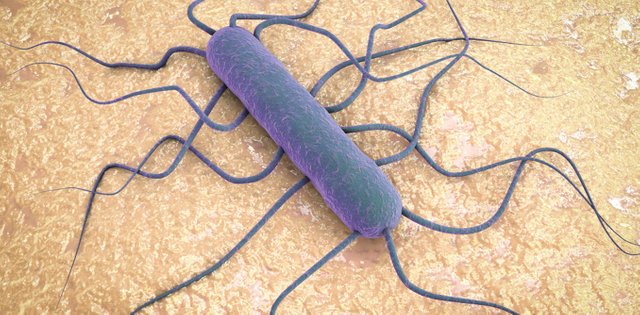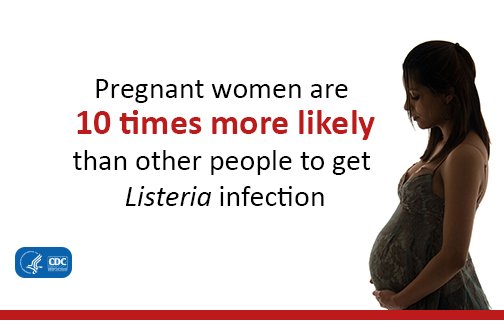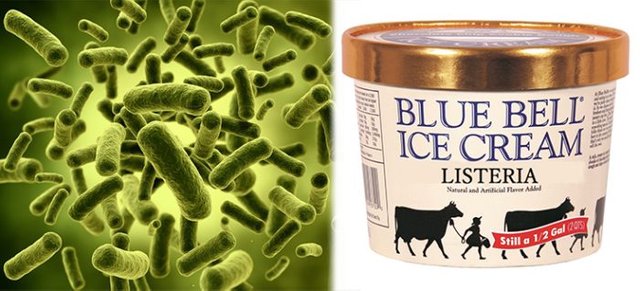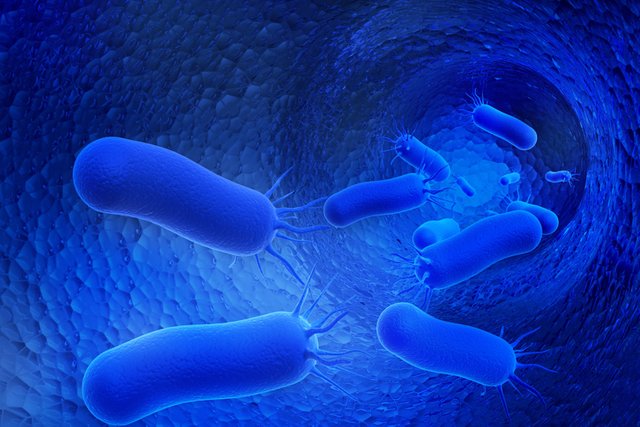Bug of the Day: Listeria | Causes & Treatments

What is listeria?
Listeria monocytogenes is a facultative anaerobic, nonsporulating, gram-positive rod that grows over a broad range of temperatures including refrigeration temperatures. This bacteria is generally referred to as a food-borne pathogen that can cause serious infections, particularly in young children, pregnant women, immunocompromised individuals, and elderly individuals.

How do people get infected with Listeria?
Listeria is usually caused by eating foods contaminated with Listeria monocytogenes at high concentrations. Foods commonly found to be contaminated with Listeria monocytogenes are processed and unprocessed foods of animal and plant origin. Especially cheeses, milk, delicate meats, and hot dogs. In addition, fresh fruits and vegetables can also transmit the organism.

Like other enteric pathogens, Listeria monocytogenes induces its own internalization by cells that are not normally phagocytic. This means the mechanism by which the microorganism enters the human cells its mediated by its own processes, which enables the bacteria to cross from the intestinal tract into the blood and facilitates the entry of the bacteria into the brain or placenta.
Dangers of Listeria
Listerial infections can present as several different clinical syndromes. The most common of which are meningitis and septicemia.
Septicemia
Listeria monocytogenes septicemia presents as a non-specific flu-like illness with symptoms such as fever, chills, and pain.

Meningitis
Listeria monocytogenes causes about 5-10% of all cases of community-acquired bacterial meningitis in adults in the United States. Case-fatality rates are reported to be 15-26% and unfortunately have not changed over time. The Cerebral spinal fluid profile in listerial meningitis most often shows white blood cell counts in the range of 100-5000/μL (rarely higher). In addition, about 75% of patients have cell counts below 1000/μL, usually with a neutrophil predominance. Low glucose levels are also common and positive results on Gram's staining are found about 30-40% of the time. If left untreated, Hydrocephalus can occur.
Gastroenteritis
Listerial gastroenteritis typically develops within 48 hour following the ingestion of a large amount of bacteria in contaminated foods. Rates as high as 50-100% of listeria cases have been reported to cause gastritis or inflammation of the stomach.
Treatment
Antibiotics
Although no clinical trials have compared different antimicrobial agents for the treatment of Listeria monocytogenes infections. Ampicillin is considered the drug of choice. Penicillin can also be used due to its high activity against Listeria monocytogenes.
Doses
- Ampicillin 2 grams IV every 6 hours with or without Gentamicin 1 - 1.7 mg/kg every 8 hours for synergy
- In penicillin allergic patients Bactrim (TMP-SMX) 15 - 20 mg of TMP/kg per day divided in doses every 6 - 8 hours is another treatment alternative.
Duration
The duration of antibiotic therapy depends on the syndrome:
- Bacteremia: 2 weeks
- Meningitis: 3 weeks
- Brain abscess/encephalitis: 6-8 weeks
- Endocarditis in both neonates and adults: 4 - 6 weeks

Recent Posts

Nice post!
Thank you! :)
Very informative! First time to hear about listeria ! Thanks for the warning...
Thank you. I'm really glad you enjoyed it and found it helpful :)
I had heard a little about listeria, but I didn't know its causes and treatment in detail, thanks for the info!
I'm really glad you found it helpful. Thanks for stopping by and taking the time to read it :)